My mother informed those gathered last month that, as a child, I would barf in the car going to get groceries.
 It’s true, I can’t tolerate the motion.
It’s true, I can’t tolerate the motion.
We went out on a boat in Florida, and I yakked.
So does Chapman.
But I did manage to drive about half of the 48 hour trek from Kansas to Florida and back and would sometimes stop at a burger joint. Then that craving goes away, for longer and longer periods of time.
So what’s a little horse mixed in?
It has to do with faith-based food safety, reputation, and that purveyors say one thing but may be doing another.
And that makes lots of people want to barf.
The Independent reported last week the horsemeat-in-beef-burgers scandal is now a fully fledged economic crisis for Ireland’s multi-billion agribusiness – a beacon of light during the recession – and the country’s reputation as an international food producer may be damaged beyond repair.
It is now a runaway train that could yet derail the lucrative export market for Irish processed meat products and cost the economy millions of euro. The damage included immense reputational harm to not just Irish meat processors found to have produced burgers with 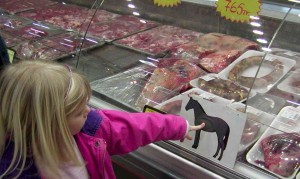 equine DNA but the overall food industry here. In all, 27 beef burger products were analyzed, with 10 of the 27 products (37 per cent) testing positive for horse DNA and 23 (85 per cent) testing positive for pig DNA.
equine DNA but the overall food industry here. In all, 27 beef burger products were analyzed, with 10 of the 27 products (37 per cent) testing positive for horse DNA and 23 (85 per cent) testing positive for pig DNA.
The Food Safety Authority of Ireland (FSAI) had last week revealed that up to 29 per cent of the meat content of some beefburgers was in fact horse, while they also found pig DNA.
In addition, 31 beef meal products – shopping-trolley staples such as cottage pie, beef curry pie and lasagne – were also analysed. Of these other beef products, 21 were positive for pig DNA but all were negative for horse DNA.
All 19 salami products analysed tested negative for horse DNA.
But traces of horse DNA were detected also in batches of raw ingredients, including some imported from the Netherlands and Spain which are used in the production of burgers.
Reputational damage to major international companies will also cost Ireland dear in lost business – even though it now appears likely that the source of the contamination was a bought-in additive from either the Netherlands or Spain, though the Spanish have denied involvement.
Tesco – where one of its Irish produced “Value Range” burgers had 29 per cent horsemeat – lost €300m of its market value in one day. Burger King was revealed as using one of the Irish suppliers at the centre of the storm. It has now ditched all Silvercrest beef products in Britain and Ireland.
Cooking tools, pans, sinks and dishcloths used in kitchens where the meat was handled must also be sanitised or disposed of.
According to a January 20 memo, employees at restaurants in the UK were told to continue serving the suspected meat until they received replacement product from a different supplier – and make no mention of the withdrawal to customers.
“If our guests inquire regarding our beef products, the team member should immediately inform the restaurant manager,” wrote Tracy Gehlan, the vice president of brand standards and excellence for stores in northwestern Europe, wrote in the memo.
“The manager should inform the guest that Burger King ‘has taken all necessary precautions to ensure that our guests are receiving the quality products that Burger King is known for’.”
Excellence.
The frozen burgers were on sale in high-street supermarket chains 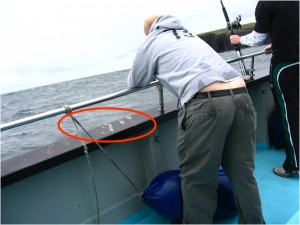 Tesco and Iceland in both Britain and Ireland, and in Irish branches of Lidl, Aldi and Dunnes Stores. Tesco is Britain’s biggest retailer.
Tesco and Iceland in both Britain and Ireland, and in Irish branches of Lidl, Aldi and Dunnes Stores. Tesco is Britain’s biggest retailer.
Earlier, shadow environment secretary Mary Creagh said “several” UK-slaughtered horses with phenylbutazone, or bute, may have been sold for food.
The FSA said it identified eight cases of bute-positive horsemeat in 2012, none of which was for the UK market.
The drug is banned from being consumed by humans within the EU.


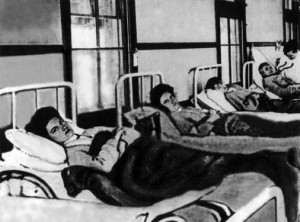
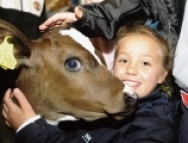
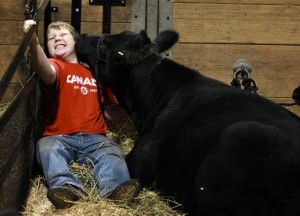

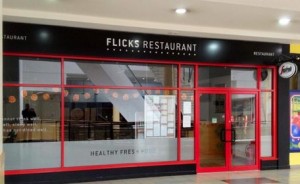
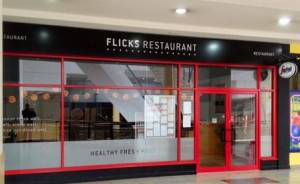
 spread to the rest of the bay. The news came as swimmers re-entered the icy surf off several southern beaches yesterday, after new tests indicated bacteria levels were falling in sea water.
spread to the rest of the bay. The news came as swimmers re-entered the icy surf off several southern beaches yesterday, after new tests indicated bacteria levels were falling in sea water..jpeg) the monthly inspection results as "extremely disappointing".
the monthly inspection results as "extremely disappointing"..jpg) protection in the Health Service Executive (HSE).
protection in the Health Service Executive (HSE).